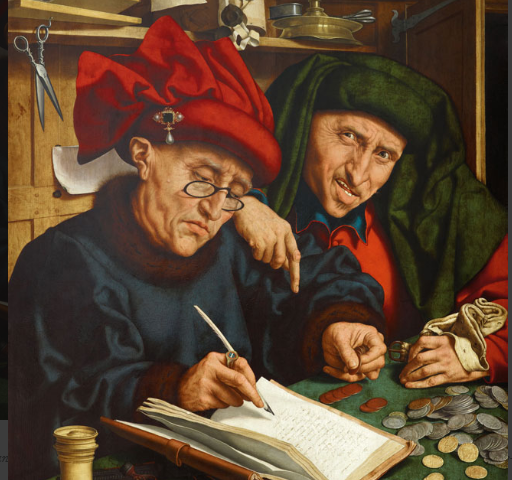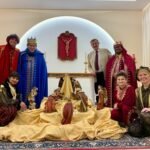
by f. Luis CASASUS, General Superior of the Idente Missionaries.
Santa Cruz de la Sierra,
November 03, 2019, Thirty-first Sunday in Ordinary Time.
Book of Wisdom 11: 22-26.12,1-2; 2Thessalonians 1: 11-12.2,1-2; Saint Luke 19:1-10.
An adult man, especially of the social rank of government workers, would not climb a tree. It was a self-humiliating act to do. Yet, Zacchaeus’ desire to see Jesus was stronger than the social customs of the day.
He was hated and rejected by people. He must have been a very lonely and dejected man. Despised and ostracized, he only retreated further. This explains why he was hiding away from the crowd. He was never given a chance to love and be accepted. Why didn’t he go up on the terrace of one of the many houses along the main street? Because no one would agree to host him. Nobody opened a door for him. Here is Zacchaeus: the unclean, the sinner, refused by all. He desperately looks for Jesus because he has heard of him. In his mind, he thought of himself as completely undeserving of Jesus’ attention except perhaps to have a glimpse of Jesus.
And he climbed the sycamore. And maybe his clothes got stained and torn…
Even though Zacchaeus was a sinner and undeserving of His attention, yet He singled him out of the crowd. He did not try to dissociate Himself from him even though others were cynical when they saw Him reaching out to him. Jesus did not care what they thought since for Him, Zacchaeus too was a son of Abraham and He had come to seek out and save what was lost.
The crowd that follows the Master does not understand, criticizes him and opposes his choices and his saving work. He is the very first willing to lose his reputation… he knows what He is talking about.
Lesson #1: Christ is the only one capable to fully overcome our attachment to fame.
—ooOoo—
Probably, it was not hard to see a grown man on the tree. Jesus not only noticed Zacchaeus but invited Himself to Zacchaeus’ house. The tradition, then and today, is to wait to be invited, but Jesus, knowing our true desires and seeing our hearts, takes the initiative and touches our hearts with an impassionate request: I need your help, I want to share your table, I must stay at your house. We do not know whether Zacchaeus intended to invite the Lord to his house, but overjoyed at the opportunity to do so. Am I conscious of the continuous call of Christ for my little contribution?
A story is told of a woman who wanted peace in the world and peace in her heart but was very frustrated. The world seemed to be falling apart. She would read the papers and get depressed.
One day she decided to go shopping, and she went into a mall and picked a store at random. She walked in and was surprised to see Jesus behind the counter. She knew it was Jesus because he looked just like the pictures she’d seen on holy cards and devotional pictures. She finally got up her nerve and asked, Excuse me, are you Jesus?
I am.
Do you work here? No, I own the store.
Oh, what do you sell here?
Just about everything, Jesus said. Feel free to walk up and down the aisles, make a list, see what it is you want and then come back and we’ll see what we can do for you.
She did just that, walked up and down the aisles. There was [for sale] peace on earth, no more war, no hunger or poverty, peace in families, no more drugs, harmony, clean air, careful use of resources. She wrote furiously. By the time she got back to the counter, she had a long list. Jesus took the list, skimmed through it, looked up at her and smiled. No problem. And then he bent down behind the counter and picked out all sorts of things, stood up and laid out the packets.
She asked, What are these?
Seed packets, Jesus said.
She said, You mean I don’t get the finished product?
No, this is a place of dreams. You come and see what it looks like, and I give you the seeds. You plant the seeds. You go home and nurture them and help them to grow and someone else reaps the benefits.
Oh…, she said. And she left the store without buying anything.
Lesson #2: Jesus always takes the initiative. In many different ways, in diverse situations, with all kinds of people, Christ invites us to be generous. And only He alone knows what will happen with our humble response, with our small gesture, just sowing seeds or inviting someone to dinner. But certainly, a change in our hearts and in the lives of our neighbors will take place.
—ooOoo—
Jesus did not tell Zacchaeus he needed to repent to be with Him. Because of the kindness of Jesus, he accepted Zacchaeus as he was. He did not require Zacchaeus to change so that he could be in his presence.
This unconditional acceptance prompted a radical turn in Zacchaeus’ life and said, I will give half my possessions to the poor. If I have taken too much from anyone, I will give back four times as much. It is amazing what happens under the shadow of kindness. Before Christ said or did anything else, Zacchaeus repented. He accepted the truth about himself, that he was a criminal exploiter of the needy. To make things right, he gave half of what he owned to the poor and restored fourfold what he had stolen from others. At that moment, this despised and miserable man began to turn his life around.
Unlike what he did with the young rich man (Lk 18:18-23), Jesus did not ask Zacchaeus to sell everything and to distribute the money to the poor. He did not reprimand him nor put any condition. He only asked to be welcomed. Zacchaeus was not admitted to the banquet of the kingdom because he was good. He was converted when he found out that God loved him even though he was an impure, poor, small, indeed, precisely because he was small. The discovery of this disinterested love was the light that dispelled the darkness that enveloped his life and made him realized that only love and grace are a source of joy.
Lesson #3: Jesus did not set himself to lecture Zacchaeus. Of course, we have to reproof and instruct (when we have this mission) but when we feel we are accepted by someone around us, when we know that we are valued and that we have something to offer, our hidden generosity is awakened and a strong sense of communion and belonging is developed in our heart. This is the education of our ecstasy.
—ooOoo—
As Zacchaeus did, we must begin our conversion now. We must respond to the grace of God whilst we have the opportunity, when we feel that Christ is passing by, the Holy Spirit is giving us an opportunity and when our heavenly Father is forgiving us because we do not know what we do.
Zacchaeus was diligent in initiating his conversion and therefore he was inspired to give a powerful testimony, to serve as a model for his contemporaries and for us all.
When we are aware of Christ’s invitation to put out into the deep, to follow Him, to serve and to testify the kingdom of God, we cannot delay any longer and wait for a better moment, when I might be healthier or with clearer ideas. It will be too late. Today, if you hear his voice, do not harden your hearts as you did in the rebellion (Heb 3: 15).
We cannot afford to wait for the last day because any day is unrepeatable. This was the confusion of Thessalonians which led Paul to write: Please do not get excited too soon or alarmed by any prediction or rumor or any letter claiming to come from us, implying that the Day of the Lord has already arrived. Each day is different and unique, not only “the last one”, with a new and different grace. Let us grasp the opportunity and start living a different and generous life today and share this life with others.
Salvation did not come automatically for Zacchaeus, it was offered free of charge, but he had to welcome her into his home. Only then he finally discovered the true joy that he was desperately looking for. It is true that love begets love: Zacchaeus, freely loved, realizes that there are other people who need love and he remembers the poor.
The Bible does not say much about Zacchaeus’ life after his encounter with Christ. But we can hope that he retained this enthusiasm and love for his Master until the end of his life, as we read in the Gospel: And we desire that each one of you show the same diligence to the full assurance of hope until the end, that you do not become sluggish, but imitate those who through faith and patience inherit the promises (Heb 6: 11-12).
Lesson #4: Zacchaeus used properly the main strength and ability of businessmen: he saw a unique opportunity…and he took it. His life is an excellent example of evangelical gratitude, which sets into motion all our energies, skills and talents. Our response to the free gift of our salvation is to use our new-found freedom for the work of evangelization and mercy.
Moreover, we need an especial or extraordinary event, to fully awake our best qualities. For example, if someone has rescued us from the brink of disaster or even death, we will be forever grateful to that person and we will do anything for him because of our gratitude. This is the way we are. And Zacchaeus was consistent with the gift of salvation and healing he received from Christ.
—ooOoo—
The poor are not simply the materially poor. This is especially obvious in many developed countries, where the majority are poor in love, poor in meaning and purpose. Many who are rich, educated and successful live empty, lonely and meaningless lives. Life has no meaning when we do not have an aspiration. So many of us are like Zacchaeus. We are successful and have everything we need. But the yearning of the soul and the hunger of the heart can only be quenched by love, the love of God and love of our neighbors.
Our father Founder asked us to reach out to the young people and to the intellectuals. These groups might seem particularly privileged, because of their education, energy or social status, but they undoubtedly are examples of the new forms of poverty which Pope Francis reminds us of. Old and new forms of poverty, old and new types of loneliness and lack of purpose in life.
In Jericho, Jesus is in the midst of the righteous who follow him, listening to his word and applaud him. Yet, immediately, as soon as he sees a small one, he immediately diverts his eyes from the group of the faithful and directs his attention to the sinner. He feels an irrepressible need to be with the one who is isolated and despised. A poor man with lots of money.
The Eucharist we celebrate is the love and the presence of God and we must extend this love in our hearts to our brothers and sisters. Because, ultimately, only living for the kingdom of heaven can give us enthusiasm and hope beyond this world.
Lesson #5: We all are poor in one way or another, and perhaps in many ways. This is why the apostle is called to get close to everyone without distinction.









